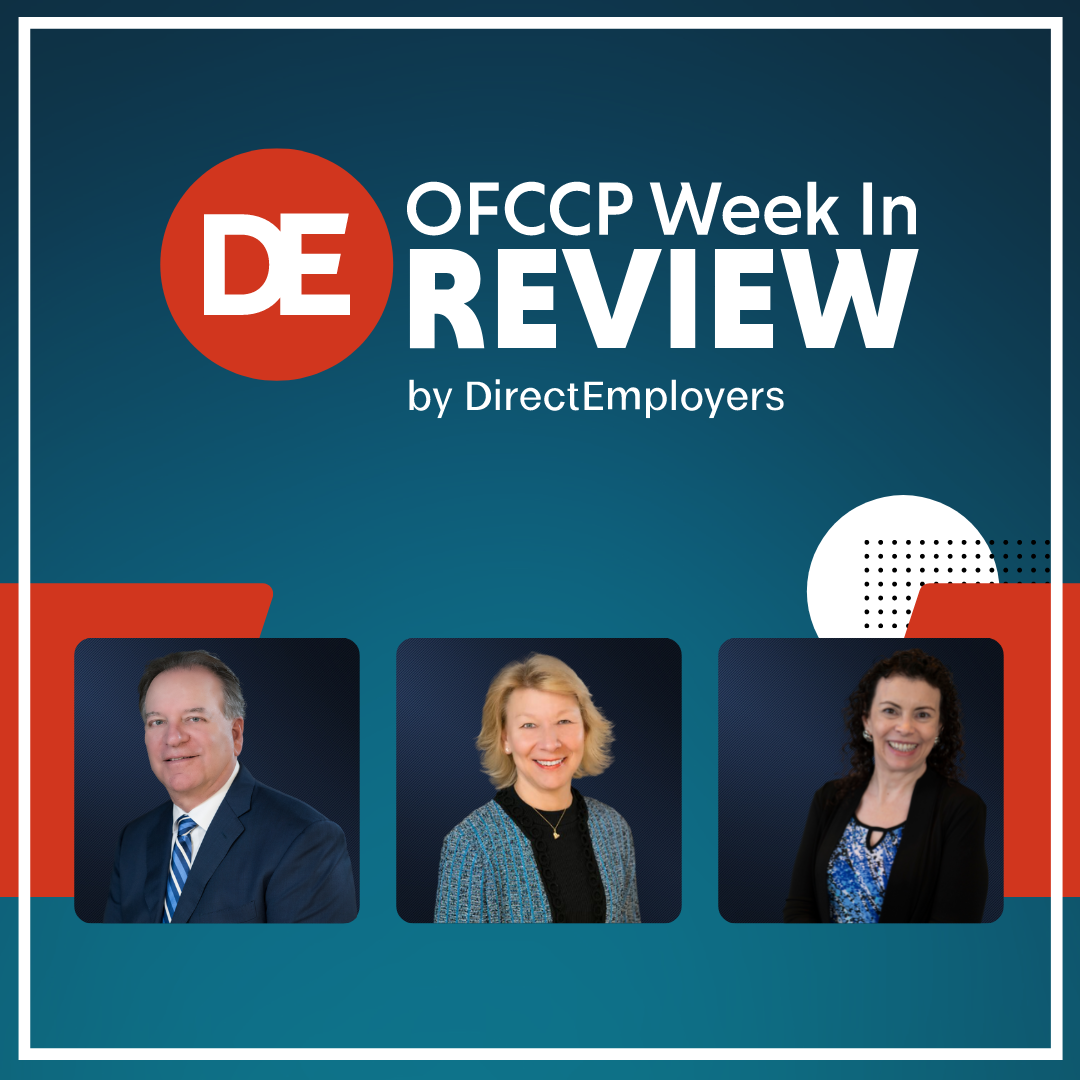
- New US DOL Administrative Review Board Decision from March Sets Down New Backpay Calculation Runway in Litigated OFCCP Cases
- GAO Official Testified That Programs to Help Military-to-Civilian Life Transitions Need Improvements
- $1 Million Settlement Reached on US EEOC Allegations That Dollar General’s Hiring Process Violated GINA & ADA
- OFCCP’s FY 2023 Back Pay Collections Now Stop its Four-Year Downward Spiral by Exceeding its FY 2022 Collections
- Karla Gilbride Sworn In as U.S. EEOC General Counsel
- In Brief
- Looking Ahead: Upcoming Date Reminders
Monday, October 16, 2023: New US DOL Administrative Review Board Decision from March Sets Down New Backpay Calculation Runway in Litigated OFCCP Cases
Former Labor Secretary Walsh Reversed Previous ARB/ALJ Rulings Last Year
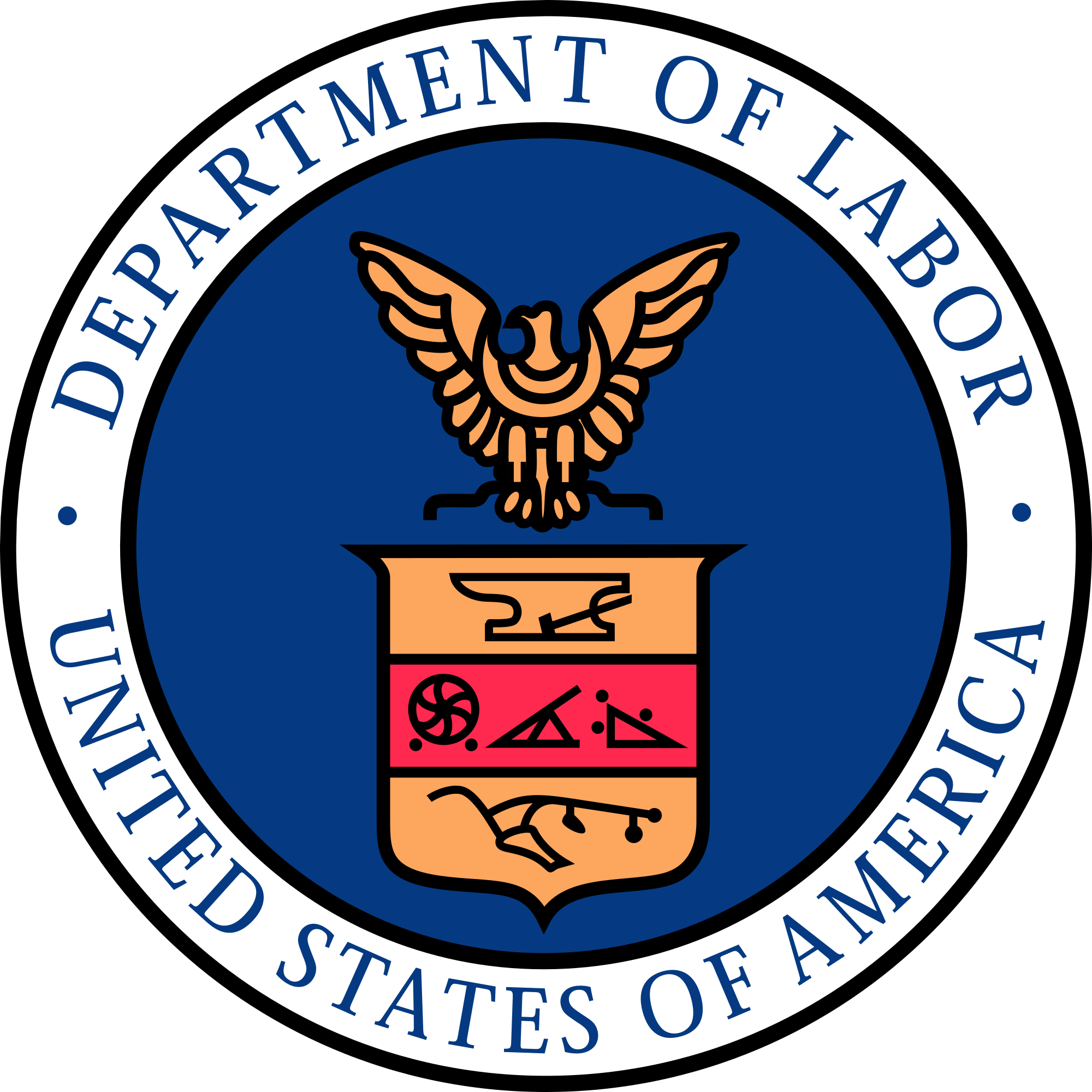
On December 23, 2022, then Secretary Walsh issued a Final Agency Decision reversing in part an earlier decision by the ARB. The ARB decision had affirmed an ALJ’s decision that had imposed remedies for alleged unlawful hiring and compensation discrimination. Finding that the ALJ “abused his discretion” in ruling on several issues regarding damages and other remedies, the Secretary remanded those portions of the case back to the ARB. For further details on that decision, see our story here.
In the newly posted, 14-page March 8, 2023, “Order on Remand from the Secretary of Labor,” the ARB modified the back pay and interest awards and ordered job relief consistent with the former Secretary’s Final Agency Decision. That Order now requires backpay to be calculated up to and through the date of the trial judge’s (Administrative Law Judge’s, or “ALJ’s”) decision. Prior to Secretary Walsh’s unusual intervention in the WMS case, ALJs had routinely ordered backpay calculated to and through a set date in advance of the trial (technically called a “Hearing”).
This “set date” practice had allowed Expert Witnesses for each side to then testify at trial and inform the Court of their opinions as to what the damages were and what amount of interest had accrued on those damages to and through the date in advance of trial the Court had set. And since ALJs routinely now take over a year after trial to render their written Judgments in OALJ OFCCP cases alleging unlawful discrimination, Secretary Walsh’s concern was that the beneficiary of a backpay Judgment was suffering the loss of the use of the backpay monies while awaiting the ALJ’s judgment in cases in which OFCCP prevailed by proving unlawful discrimination had occurred. The ALJ’s judgment is known technically as a “Recommended Decision and Order” and concludes the Hearing.
Going forward, Expert Witnesses testifying about backpay damages in an OFCCP discrimination case will have to provide the Court with daily interest rate accumulation projections over the period of time the Court might require to render its Recommended Decision and Order should the ALJ find unlawful discrimination occurred. Otherwise, the ALJ would have to reconvene a second Hearing just to hear Expert Testimony to true up the accrual of interest for the interval of time since the date of the testimonies of the Expert Witnesses at the original Hearing which led up to the ALJ’s Recommended Decision and Order.
Wednesday, October 18, 2023: GAO Official Testified That Programs to Help Military-to-Civilian Life Transitions Need Improvements
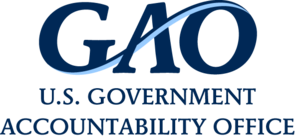
Since February 2022, the GAO has made ten recommendations (nine to DOD and one to VA) related to these military transition programs (See Appendix 1 (starting on page 13) of the Testimony Report. DOD concurred with the recommendations and identified planned steps and time frames for their implementation. VA implemented the GAO’s recommendation to it.
Highlights of those recommendations include:
- DOD has two programs to help service members get civilian credentials for their military training, but it does not have sufficient evidence to show that the programs work. Service members have the opportunity to obtain civilian credentials related to their military training and skills before they leave the military, which they can use to obtain civilian jobs. In February 2022, the GAO found that DOD had not fully assessed the effectiveness of these programs. One of the recommendations for the DOD was to undertake such an assessment.
- Service members preparing to leave the military generally must participate in the Transition Assistance Program (“TAP”). Although DOD service branches have implemented elements of TAP, in July 2021, the GAO found that selected small or remote installations had implementation challenges. Moreover, the GAO’s December 2022 analysis of TAP data from April 1, 2021 to March 31, 2022, showed that nearly a quarter of service members who were required to attend a 2-day TAP class did not do so. The GAO also found that most service members (70 percent) did not start TAP more than one year in advance, as generally required. Additionally, DOD and its service branches were not using available performance data to understand the root causes of poor participation and take appropriate corrective action.
- The Solid Start program provides tailored information about resources and benefits to support veterans during their first year after leaving the military. In January 2023, the GAO found that VA representatives successfully contacted about 71 percent of eligible veterans in 2021, and these veterans used VA benefits to a greater extent than those who did not speak with a representative. However, the GAO found that VA had not collaborated with veterans’ organizations to help connect with hard-to-reach veterans. As a result, the GAO recommended greater collaboration with these organizations.
Thursday, October 19, 2023: $1 Million Settlement Reached on US EEOC Allegations That Dollar General’s Hiring Process Violated GINA & ADA
Agency Alleged Retailer Required Disclosure of Family Member’s Medical Conditions During Pre-Employment Medical Exam
EEOC Also Alleged Employer Used Criteria that Screened Out Qualified Applicants with Disabilities

GINA Allegations Centered on Solicitation of Family Medical Histories
According to the EEOC, after the retailer made job offers to work at its Bessemer, Alabama Distribution Center, it required those 498 applicants to pass a pre-employment medical exam which required them to divulge past and present medical conditions of family members such as cancer, diabetes, and heart disease. GINA defines “genetic information” to include the manifestation of a disease or disorder in an employee’s/applicant’s family members. GINA prohibits employers from requesting, requiring, or purchasing genetic information, including about applicants or employees and their family members, except in very narrow circumstances.
“Requiring individuals during the hiring process to answer invasive questions about medical conditions of their grandparents, parents or children violates GINA,” said EEOC Birmingham District Director Bradley Anderson in the press statement. “An employer is prohibited from soliciting this information, regardless of whether the information is used to deny employment.”
ADA Allegations Centered on Job Qualification Criteria
The Commission also alleged that the retailer used qualification criteria that screened out qualified individuals with disabilities. For instance, the employer rescinded job offers to applicants whose blood pressure exceeded 160/100 or who had less than 20/50 vision in one eye, even when those impairments did not prevent the applicants from safely performing the job, the EEOC claimed.
“The ADA protects job applicants from being denied employment because of a disability as long as they can perform the job with or without an accommodation. Employers cannot deny employment solely based on stereotypes about the abilities of individuals with certain impairments,” said Regional Attorney for the EEOC’s Birmingham District Marsha Rucker in the press release.
Other Agreed Upon Remedies
The 27-month consent decree settling the suit also requires the employer to review and revise its ADA and GINA policies and distribute them to all individuals involved in the hiring process should they resume requiring medical exams. In addition, the employer must (1) require their medical examiners not to request family medical history; (2) consider the medical opinion of an applicant’s personal physician; and (3) inform applicants how to request a reasonable accommodation if needed. Under the agreement, the retailer will also provide annual training to all individuals involved in the hiring process on the ADA and GINA and post a notice to employees on their rights under these statutes and how to file a charge of discrimination with the EEOC.
Friday, October 20, 2023: OFCCP’s FY 2023 Back Pay Collections Now Stop its Four-Year Downward Spiral by Exceeding its FY 2022 Collections
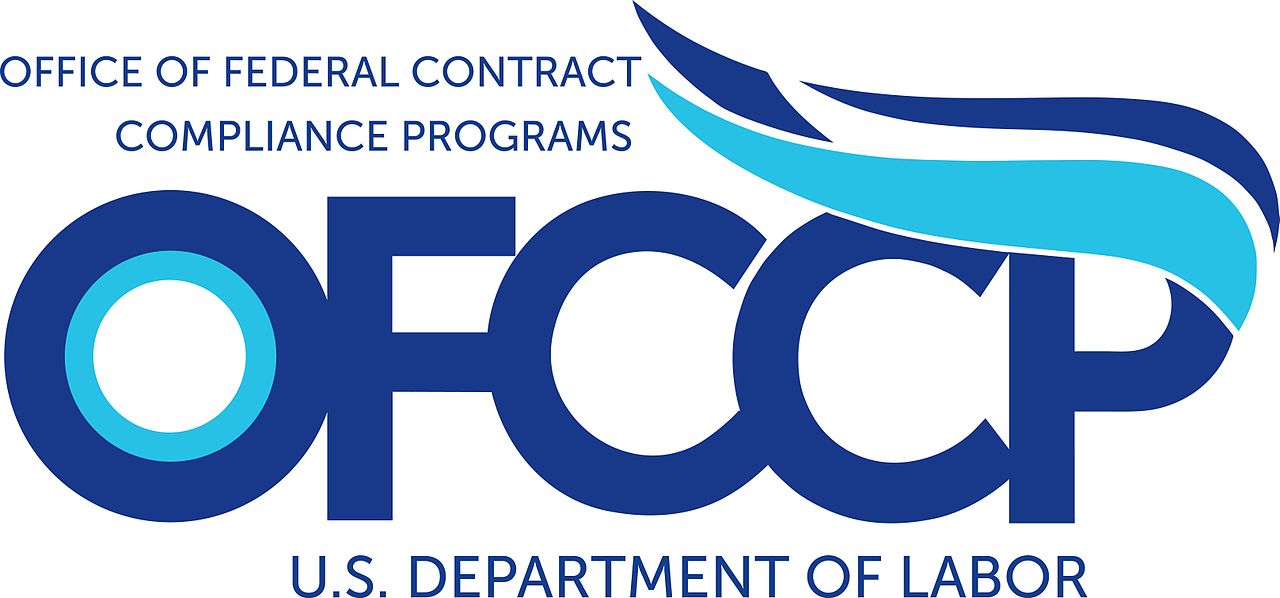
The volume of last-minute end-of-Fiscal Year settlements, their late reporting to the public, and their higher monetary value also set new records for OFCCP. While we are not sure the agency is finished yet with late reports of discrimination law settlements (since it has now trickled out over 15 of them two to three weeks after Fiscal Year 2023 ended), OFCCP has thus far reported 35 Conciliation Agreements for FY 2023 settling discrimination claims it made against covered federal Government contractors, 13 of them (37%) occurred in the fourth Quarter of FY 2023. Moreover, those 4th Quarter settlements were worth $9,868,294.18 or 71% of OFCCP’s (thus far) total back pay collections in FY 2023.
NOTE: Prior OFCCP Administrations had tried to curb OFCCP’s historic habit of a swelled end-of-year settlement push by seeking to level settlements more evenly throughout each quarter of the Fiscal Year. OFCCP has now clearly reverted, however, to its prior “run fast at the end of the race” settlement strategy as we reported last week and a year ago. OFCCP’s end of year settlement push this past Fiscal Year was simply later and larger than that of previous years.
OFCCP’s enforcement production to date for FY 2023 of over $13 million has now increased its FY 2022 production (of $11,763,447) by 17%. The FY 2023 back pay collection uptick, however, is still only about half of OFCCP’s $26 million plus back pay collection in FY 2021 and almost two thirds less than the $35 million plus in the last year of the Trump Administration.
And, of course, this year’s increase in back pay collections to $13 million pales by comparison to OFCCP’s record $40 million plus the agency raked in during the penultimate year (FY 2019) before the Trump Administration left office (as we reported then and summarized in our Week In Review story last Monday October 16, 2023 and hyperlinked, above). So, OFCCP’s FY 2023 back pay collections was a nice (and needed) rebound, but with a l-o-n-g way back to its “glory days” only a few short years ago.
We will continue to follow the saga of OFCCP’s FY 2023 back pay collections to determine if the agency is now done, or whether the spigot is still trickling discrimination law settlements out every few days like a short order cook serving up diner food.
Monday, October 23, 2023: Karla Gilbride Sworn In as U.S. EEOC General Counsel
Senate Voted to Confirm Nomination on Tuesday
Republican Senator Collins Gave Gilbride Her 50th “Yea” Vote

On Tuesday, with insufficient Democrat support to get her confirmed, Senator Susan Collins (R-ME) broke political party ranks and cast her vote “Yea” in favor of Gilbride’s confirmation to be the next General Counsel (“GC”) of the U.S. Equal Employment Opportunity Commission (“EEOC”). Collins’ vote gave Gilbride a 50-46 win which otherwise formed up along party-lines. Collins was the sole Republican voting in favor of Gilbride’s nomination, but without Collins, Gilbride’s nomination would have failed. All of the Senators who voted against the nomination were Republicans. Two Republicans – Rand Paul (KY) and Tim Scott (SC) – and two Democrats –newly appointed Laphonza Romanique Butler (CA) (replacing Senator Diane Feinstein who recently died in office) and Richard Durbin (IL) – did not vote.
Earlier the same day, the Senate voted 50-47 to bring any debate on the nomination to a close. Senator Collins was also the sole Republican vote then. Democratic Senators Butler and Durbin and Republican Senator Paul did not vote.
How We Got Here
In June 2022, the President first nominated Ms. Gilbride for the EEOC GC position (more details on her background are in our story here). The Senate failed to approve her nominations in the previous (117th) Congress which adjourned on January 3rd of this year as the 118th Congress was seated. Nonetheless, President Biden re-nominated her in January. In February, the Senate Committee on Health, Education, Labor, and Pensions (“HELP”) Committee reported favorably on Gilbride’s nomination (our story is here).
When President Biden first announced his nomination of Ms. Gilbride in June 2022, it was almost 15 months after he fired President Trump’s pick for EEOC General Counsel, Sharon Gustafson. President Biden fired Gustafson in March of 2021 after she refused to resign upon the change in administrations.
In Brief
Thursday, October 19, 2023: October 26 Date Scheduled for First Public Input Session on US DOL’s Subminimum Wage Program
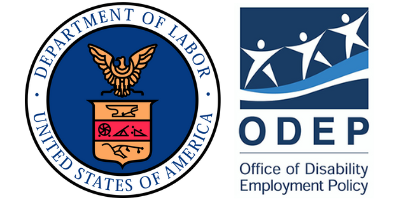
This virtual engagement session is scheduled for 5:30 to 7:00 PM ET. Those who wish to participate must register here by October 25. CART (“Communication Access Realtime Translation”; see also here) and American Sign Language (“ASL”) interpreter services will be provided. Other reasonable accommodation requests must be submitted via the registration form by October 23, 2023. ODEP states that it is particularly interested in input on experiences with options for competitive integrated employment (“CIE”), lessons from states that have expanded CIE and/or prohibited subminimum wages, impacts of potentially ceasing to issue 14(c) certificates in the future, and any related issues.
Friday, October 20, 2023: Senate HELP Committee Scheduled Hearing on Nomination of Current EEOC Chair Burrows for 3rd Commissioner Term
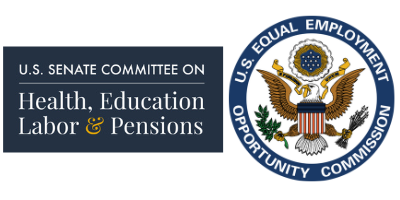
President Biden nominated Commissioner Burrows for a third term in June of this year. (See our story here). If confirmed, Ms. Burrows’ third term would expire on July 1, 2028. Her second term technically expired on July 1, 2023. However, under Commission Rules, sitting Commissioners may remain in office until the end of the calendar year in which their term of office terms out, if the U.S. Senate does not previously confirm the President’s Nominee to replace a departing Commissioner.
Looking Ahead:
Upcoming Date Reminders
There is one NEW item added to our calendar this week:
June 2023: U.S. DOL WHD’s current target date (now overdue) to publish its Final Rule on Nondisplacement of Qualified Workers Under Service Contracts (RIN: 1235-AA42)
June 2023: U.S. OSHA’s current target date (now overdue) to publish its Final Rule on Occupational Exposure to COVID-19 in Healthcare Settings (RIN: 1218-AD36)
August 2023: U.S. DOL WHD’s (now overdue) target date for its Final Rule on Employee or Independent Contractor Classification Under the Fair Labor Standards Act (RIN: 1235-AA43)
August 2023: U.S. NLRB’s (now overdue) target date for its Final Rule on Standard for Determining Joint-Employer Status (under the NLRA) (RIN: 3142-AA21)
August 2023: U.S. NLRB’s (now overdue) target date for its Final Election Protection Rule (RIN: 3142-AA22)
August 2023: U.S. DOL’s OASAM’s (now overdue) target date to publish Proposed Rule on “Revision of the Regulations Implementing Section 188 of the Workforce Innovation and Opportunity Act (WIOA) to Clarify Nondiscrimination and Equal Opportunity Requirements and Obligations Related to Sex” (RIN: 1291-AA44)
October 23, 2023: US DOL’s WHD Final Rule updating Davis-Bacon & Related Acts regulations takes effect
October 26, 2023 (2:00 pm – 3:00 pm ET): DE Masterclass Employment Law Roundtable | Compliance to Recruitment – PART II
NEW October 26, 2023 (5:30 pm – 7:00 pm ET): US DOL ODEP’s first “stakeholder engagement session” on the Section 14(c) subminimum wage program
October 31, 2023: Opening Date for EEO-1 Survey Component 1 Data Collection
November 1, 2023: Public comments due on U.S. EEOC’s proposal to update its “Enforcement Guidance on Harassment in the Workplace”
November 6, 2023: Effective Date of FAR Council’s Final Rule to enhance whistleblower protections for federal contractor employees
November 7, 2023: Comments due on U.S. DOL WHD’s proposal to revise its FLSA regulations on the exemptions from minimum wage and overtime pay requirements for executive, administrative, & professional employees
November 13, 2023: Deadline for comments on OSHA’s union-friendly proposal to revise its Worker Walkaround Representative Designation Process (previous October 30 deadline extended)
November 20, 2023: Deadline for comments on the Census Bureau’s Proposal to Test Questions on Sexual Orientation & Gender Identity for the American Community Survey
November 27, 2023: Comments due on the U.S. Office of Personnel Management’s Interim Final Rule to extend the eligibility date for noncompetitive appointment of military spouses married to a member of the armed forces on active duty through December 31, 2028
December 5, 2023: Submission deadline for EEO-1 Survey Component 1 Data Collection
December 26, 2023: NLRB’s Direct Final Rule revising its procedures governing representation elections takes effect
December 29, 2023: Statutory deadline for EEOC to finalize regulations to enforce the Pregnant Workers Fairness Act
December 2023: OFCCP’s current target date for its Notice of Proposed Rulemaking to “Modernize” Supply & Service Contractor Regulations (RIN: 1250-AA13)
December 2023: OFCCP’s current target date for its Final Rule on “Technical Amendments” to Update Jurisdictional Thresholds & Remove Gender Assumptive Pronouns (RIN: 1250-AA16)
January 1, 2024: U.S. DOL OSHA’s Final Rule Requiring Covered High-Hazard Industry Employers to Electronically Submit Injury & Illness Records Takes Effect
January 1, 2024: The minimum wage for federal contracts covered by Executive Order 13658 (“Establishing a Minimum Wage for Contractors”) (contracts entered into, renewed, or extended prior to January 30, 2022), will increase to $12.90 per hour, and the minimum cash wage for tipped employees increases to $9.05 per hour (See our story here detailing exceptions)
January 1, 2024: The minimum wage for federal contractors covered by Executive Order 14026 (“Increasing the Minimum Wage for Federal Contractors”) (contracts entered into on or after January 30, 2022, or that are renewed or extended on or after January 30, 2022), will increase to $17.20 per hour, and this minimum wage rate will apply to non-tipped and tipped employees alike (See our story here detailing exceptions)
April 3 – April 5, 2024: DEAMcon24 New Orleans
June 2024: OFCCP’s current target date for its Notice of Proposed Rulemaking to Require Reporting of Subcontractors (RIN: 1250-AA15)
THIS COLUMN IS MEANT TO ASSIST IN A GENERAL UNDERSTANDING OF THE CURRENT LAW AND PRACTICE RELATING TO OFCCP. IT IS NOT TO BE REGARDED AS LEGAL ADVICE. COMPANIES OR INDIVIDUALS WITH PARTICULAR QUESTIONS SHOULD SEEK ADVICE OF COUNSEL.
SUBSCRIBE.
Subscribe to receive alerts, news and updates on all things related to OFCCP compliance as it applies to federal contractors.
OFCCP Compliance Text Alerts
Get OFCCP compliance alerts on your cell phone. Text the word compliance to 18668693326 and confirm your subscription. Provider message and data rates may apply.

